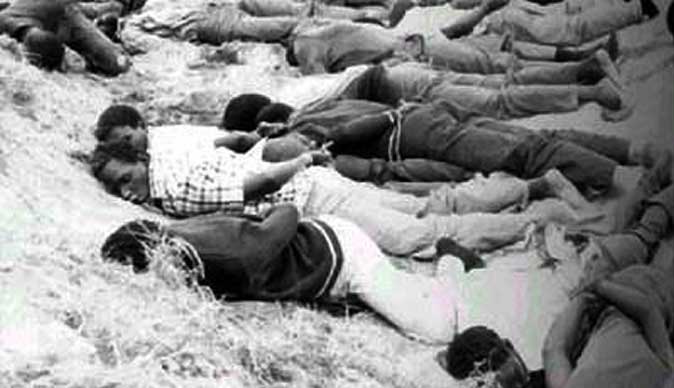
By NQOBANI NDLOVU
Zpra war veterans have established a committee on Gukurahundi to address issues specific to them after indications the government is now ready to address the 1980s killings.
The Zpra Veterans’ Trust Association — an independent body representing ex-combatants of Zapu’s military wing — accused President Emmerson Mnangagwa of mishandling the Gukurahundi issue.
Mnangagwa, through the Justice ministry, last month announced a cocktail of measures to address the emotive issue after meeting Matabeleland clergy and civic society leaders under the Matabeleland Collective banner.
Among some of the processes prescribed is to allow exhumations and reburials and issuance of birth and death certificates, but Zpra said these processes were meaningless without acknowledgement, an apology and justice system similar to the Rwandese Gacaca system of dealing with a genocide.
The Rwandan government embarked on an ambitious and unprecedented approach to delivering justice after the 1994 genocide, using both conventional domestic courts and community-based Gacaca courts.
In the late 1990s and early 2000s, in particular, thousands of people were arrested, and many were charged and tried under the Gacaca system for the genocide that killed an estimated 800 000 Tutsis and moderate Hutus.
“When that (acknowledgement and an apology) has been done, those that are responsible for having killed people should be identified as in Rwanda, where they had the Gacaca system of processing these people who had maimed, traumatised and killed other people during their genocide,” Baster Magwizi, the Zpra Veterans’ Trust spokesperson, told The Standard.
- Chamisa under fire over US$120K donation
- Mavhunga puts DeMbare into Chibuku quarterfinals
- Pension funds bet on Cabora Bassa oilfields
- Councils defy govt fire tender directive
Keep Reading
Gacaca took its name from a community-based dispute resolution mechanism traditionally used to resolve minor disputes, but drew heavily on a more conventional model of punitive justice.
Its objectives included not only delivering justice, but also strengthening reconciliation, and revealing the truth about the genocide.
“Why can’t we do the same, and then a fate is decided for them by the community, which was injured or maimed? We cannot have a process of healing where the butcher becomes the healer and reconciler.
“We say that the process has been mishandled. We think the agenda is no longer to heal the community, but to sanitise the current government of Gukurahundi. This issue will not go away until Mnangagwa comes out openly and says he is apologising and acknowledges that this thing happened,” Magwizi added.
A Gacaca pilot phase began in 2002, but it was not until 2005 that the courts began functioning. Gacaca courts then processed almost two million cases until their closure in June 2012.
Mnangagwa has been mum on issuing an apology or making an acknowledgement.










